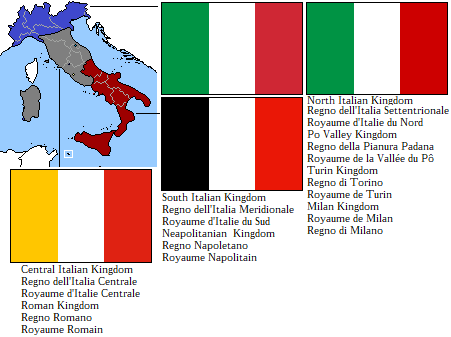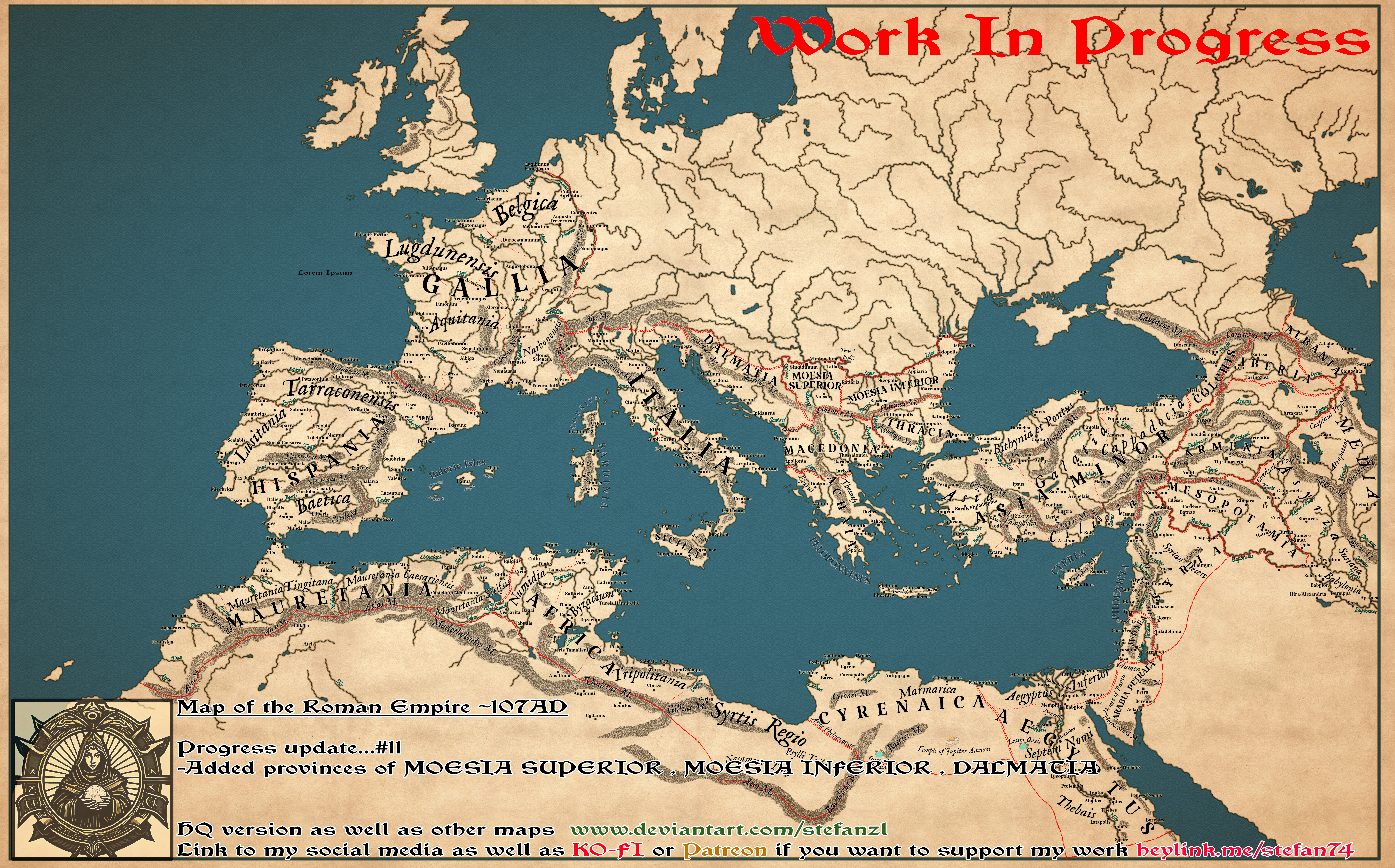HOME | DD
 SheldonOswaldLee — Chapter 25: Three Italian Brothers
SheldonOswaldLee — Chapter 25: Three Italian Brothers

#age #bonaparte #central #colonialism #democratic #emperor #empire #french #goauld #iii #imperialism #industrialisation #italian #italy #kingdom #liberal #modernization #napoleon #neaples #northern #papal #republic #senate #southern #stargate #state
Published: 2022-10-07 08:14:14 +0000 UTC; Views: 2244; Favourites: 22; Downloads: 2
Redirect to original
Description
Since the Italian Liberation Wars against the Austrian Empire, also called by some the failed Italian Unification Wars, the former Kingdoms of Italy had dwindled in numbers and the three remaining ones created by French Emperor Napoleon III became known as the Three Italian Brothers (Tre Fratelli Italiani, or Trois Frères Italiens) to show their deep cultural, religious and ethnic connection, while ironically at the same time the French kept them separate to remain in better control and hegemony over them. The first and most northern one was the North Italian Kingdom (Regno dell'Italia Settentrionale, or Royaume d'Italie du Nord), also known as the Po Valley Kingdom (Regno della Pianura Padana, or Royaume de la Vallée du Pô), or after it’s capital, first the Turin Kingdom (Regno di Torino, or Royaume de Turin), later the Milan Kingdom (Royaume de Milan, or Regno di Milano). In it the North Italian Gallo-Italic dialect dominated, with an eastern local Venetian Italian minority dialect also being spoken. The overall Franco Provincial and Occitian speaking mainly ethnic national French speaking regions meanwhile had been annexed by the French Empire as their irredentism national territory. As a new Republican Kingdom, modeled after the French Republican Kingdom and later French Republican Empire of Napoleon III itself, northern Italy would become the most Francophile and Gallicization/ Francization cultural and lingual influenced one over time.
In central Italy meawhile the Remnants of the former Papal States formed the new Central Italian Kingdom (Regno dell'Italia Centrale, or Royaume d'Italie Centrale), also known as the Roman Kingdom (Regno Romano, or Royaume Romain), were within the papacy had lost most of it’s powers and influence officially to the democratic Republic and aristocratic monarchic Kingdom formed out of it by the French under Emperor Napoleon III. However trough their Priests, Bishops and the Pope itself, as well as the religious Roman Catholics within the Central Italian Kingdom, the Papacy maintained much unofficial control and abilities to pressure the government, either directly as the Central Italian Roman Catholic Church , or indirectly trough the Central Italian Christian Party (CICP), the Central Italian Papal Party (CIPAPA) who both were more historian conservative right-wing and the christian-socialist Central Italian's People’s Party (CIPP) that was historic left-wing receptively, pushing the supporters of the Central Italian Secular Kingdom in a more centrist position attacked from all sides. At the same time new laws, restrictions and the remodeling of the former Papal Church State into a more secular Central Italian Government that engaged into a Cultural Struggle (battaglia culturale, or more aggressively battaglia di civiltà) thanks to Florentien-born Prime Minister Bettino Ricasoli of the nationalist, monarchist, confederatist, republicanist and papal monarchist and papal republicanist Moderate Party, supported by Pietro Sterbini, Pellegrino Rossi and Terenzio della Rovere as parts of the more Liberal/ Moderate of the Liberal Papal Reform Movement. An internal struggle heavily dividing the Central Italian Kingdom, that already struggled to integrate the dialect speaking minorities in Tuscany (Toscana) and Sardinia (Sardhigna) alike.
In Southern Italy meanwhile the South Italian Kingdom (Regno dell'Italia Meridionale, or Royaume d'Italie du Sud), also known as the Neapolitan Kingdom (Regno Napoletano, or Royaume Napolitain) were a South Italian Neapolitan dialect, as well as a more localized Sicilian dialect were spoken. The Liberal French Empire diplomats, militarizes and other leaders always joked that ever since the Napoleonic Wars, when Naples was governed under Joseph-Napoléon Bonaparte (Joseph I) and Joachim Murat (Joachim Napoleon) it was so close to France, but yet so far, both in regards to it’s overall location at the Tip of the Italian Peninsula, the Tip of the Italian Boot, as well as being the least under direct French influence and control overall. At the same time it had little other options then France for the most part as to the North and Northeast there was the rivaling Austrian Empire which had opposed Italian Unification and German Unification for so long, while they had little in common with the newly independent Christian Orthodox Greek Kingdom, the Christian Orthodox South Slavic Serbian-Bulgarian Yugoslavian Kingdom or the Mohammedan (later Muslim) Principality of Albania, a Turkish Ottoman Empire Protectorate.
























